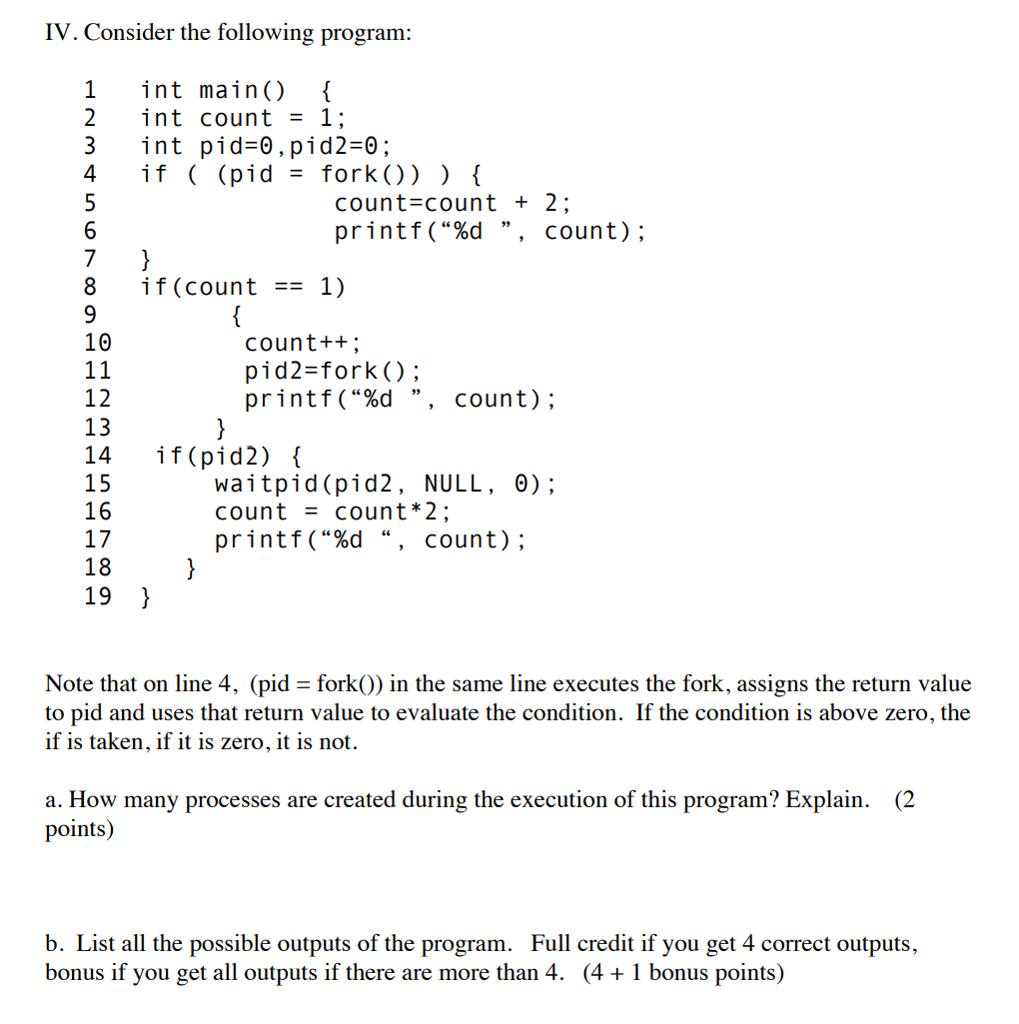Answered step by step
Verified Expert Solution
Question
1 Approved Answer
IV. Consider the following program: 1 int main() 2 3 456789 int count = 1; int pid=0, pid2=0; if ( (pid = fork()) )

IV. Consider the following program: 1 int main() 2 3 456789 int count = 1; int pid=0, pid2=0; if ( (pid = fork()) ) { if (count == 1) { 10 11 12 13 14 15 16 17 18 19 } count=count + 2; printf("%d ", count); if (pid2) { } count++; pid2=fork(); printf("%d ", count); waitpid (pid2, NULL, 0); count count *2; printf("%d" count); Note that on line 4, (pid = fork()) in the same line executes the fork, assigns the return value to pid and uses that return value to evaluate the condition. If the condition is above zero, the if is taken, if it is zero, it is not. a. How many processes are created during the execution of this program? Explain. (2 points) b. List all the possible outputs of the program. Full credit if you get 4 correct outputs, bonus if you get all outputs if there are more than 4. (4 + 1 bonus points)
Step by Step Solution
There are 3 Steps involved in it
Step: 1

Get Instant Access to Expert-Tailored Solutions
See step-by-step solutions with expert insights and AI powered tools for academic success
Step: 2

Step: 3

Ace Your Homework with AI
Get the answers you need in no time with our AI-driven, step-by-step assistance
Get Started


